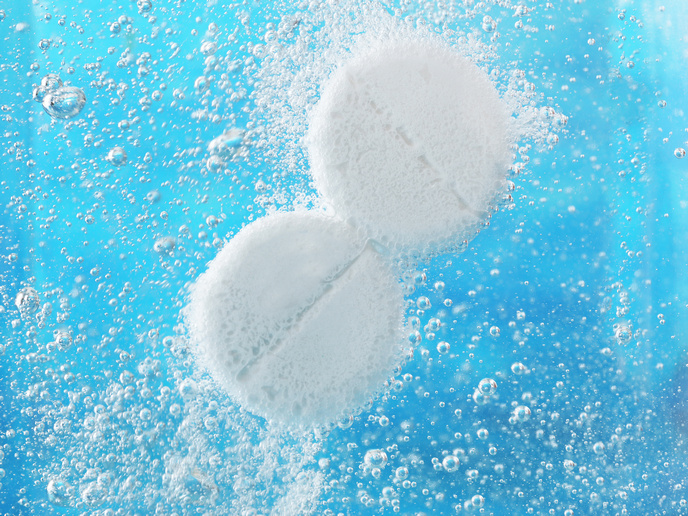Should we worry about drugs in the water supply?
While pharmaceuticals can do wonders in terms of treating the illnesses and conditions that affect us, what happens to them afterwards is a problem. Like almost everything else we ingest, eventually these pharmaceuticals will be excreted into the sewers. If not properly removed, they could eventually end up in groundwater, surface water – even our drinking water. “Pharmaceuticals are designed to resist being degraded in the body, meaning there can be a lot of ‘leftovers’ that will eventually be excreted as waste,” says Manuel Valiente, a professor of Analytical Chemistry at the Autonomous University of Barcelona. As Valiente explains, these excreted pharmaceuticals can persist even against conventional waste treatment processes. “Eventually, they will find their way into the food chain.”
Flushing drugs into the water stream
While hospitals and the companies that manufacture drugs contribute to the problem, the real culprit is us – the individuals who use pharmaceuticals at home. “We are the ones who are literally flushing these drugs into the water stream,” adds Valiente. Once flushed, these pharmaceuticals make their way into the wastewater network. However, unlike other chemicals and contaminants, current wastewater treatment solutions aren’t equipped to filter pharmaceutical residues out of the water. “The typical processes for treating wastewater are simply not prepared for handling these types of compounds and at such low concentrations,” remarks Valiente. “As a result, they can end up in our drinking water.”
Carcinogenic, mutagenic and possibly even toxic
According to Valiente, this contamination can have a direct impact on the population, particularly those with weakened immune systems or other underlying conditions. They also pose an elevated threat to children and the elderly. “This contamination is problematic because these substances can be carcinogenic, mutagenic, and toxic for reproduction,” he notes. The issue isn’t new, but, as the use of pharmaceuticals continues to grow, so too does the amount of pharmaceutical waste that enters the water supply. Limited options for mitigating the risk What can one do to avoid drinking drugs? Unfortunately, not a whole lot. While you could drink bottled water, Valiente says even that is not completely free of contamination. “While generally safer than tap water, how much safer really depends on the bottled water company applying advanced analytical controls in addition to the current regulations,” he explains. There’s also the issues of plastic waste and sustainability that come along with bottled water. You might be tempted to limit the amount of water you drink. Not only is this ill-advised from a health standpoint, it is not the most practical approach to limiting exposure to pharmaceutical waste. A more effective way of treating wastewater Instead, the best option is to improve the way we treat wastewater, which is exactly what Valiente is working on. With the support of the RECOPHARMA project, which was funded by the Marie Skłodowska-Curie Actions programme, he is leading an effort to design, develop, validate and demonstrate an effective treatment for removing and recovering pharmaceuticals from wastewater. “We’ve developed an adsorbent material that has proved capable of concentrating and removing trace levels of specific pharmaceuticals in polluted water,” adds Valiente. Installed at a wastewater treatment plant, this innovative material essentially acts as a filter, continuously removing detected drugs. “Because it is difficult to reduce the amount of pharmaceuticals being used, we must continue to focus our efforts on using modern analytical controls to remove very low concentrations of specific pollutants from wastewaters,” concludes Valiente. Click here to find out more about Valiente’s research: Keeping pharmaceuticals out of our drinking water



